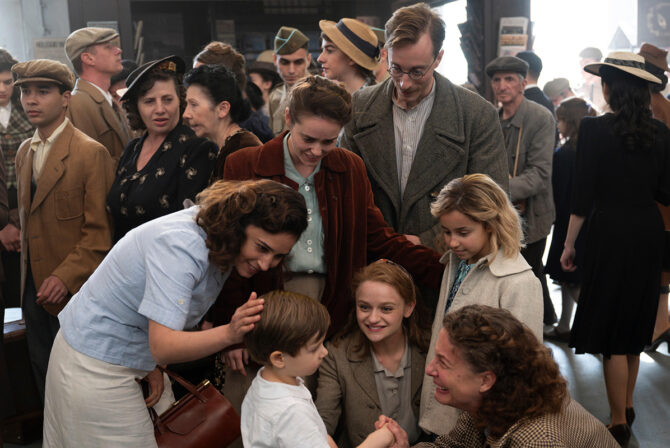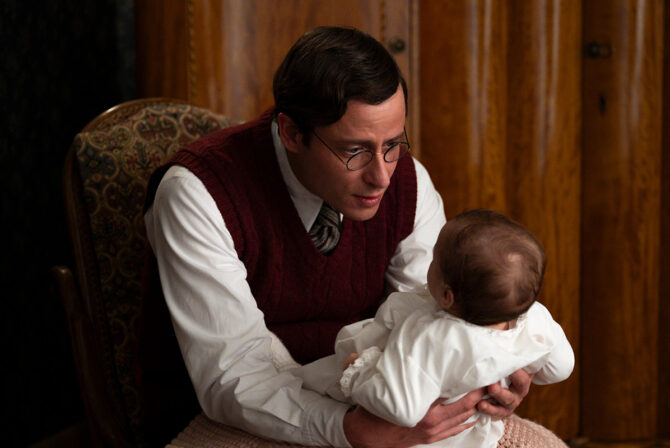In less than four months my two mini humans, Aviv (4) and Maya (2), have gone through some incredible changes. Four months ago they thought they lived with Elsa and Anna in Arendelle, everything covered in white as far as the eye could see. In just one plane ride, the snow melted and everything became hotter—the language, the people, the weather—and with that heat came inevitable changes.
1. No English: As I explained in another blog, my kids have basically given up speaking English. I wish I could say that the disappearance of my mother tongue was surprising, but it is not. All of their friends speak Hebrew, their teachers speak Hebrew, and our daily trips to the park and pool are all in Hebrew.
Despite my insistence on speaking English, I am answered not just by Hebrew speakers but by Israelis. “Lo ba li,” I don’t want to, they both tell me on a regular basis. These three small syllables are more like, “I don’t feel like it,” than an outright refusal, a slang way of saying “no.” Not only is it striking that they have given up on the language that has been in their ears and on their tongues since they were born, but they have instinctually picked up the attitude that is intrinsic to Hebrew.
READ: In Israel, Baseball is Too Babyish to Play
While I speak Hebrew, I do so as an American, translating polite sentences and adding extra words. My kids drop the excess, cut right to the point, and give me no option other than to tread water as best I can.
2. More time outdoors: If Arendelle is an eternal winter, we have entered opposite land where summer never stops. Every day is a decision between the park and the pool, between the beach and the kibbutz. In Boston, we also went to the park—between May and October—and by the early November it was getting too chilly and dark to really be outside. Since arriving in March, we have spent time outside every day.
The other side effect of more time outdoors is less time with toys. Stuck inside during a Boston winter, Legos, puzzles, and magnet tiles took a full three to four hours of our day. Here, toys see less than an hour of play depending on when the kids wake up. The kids definitely learn about new toys and trends from friends, but there seems to be less pressure to fill up our toy boxes because the fresh air is always accessible.
3. No television: Since it is rare to find a television at the park or the pool and most of their time is spent between one of those two places, my kids have almost zero exposure to television. (It helps that while we have TVs at home, we have not subscribed to cable.) On one side, I am inclined to find and stream “Sesame Street” nonstop to try and staunch the inevitable loss of English, but I also have no reason to introduce television when life is happening outside.
4. More sweets…and more vegetables: So far I have made it sound pretty good, right? In truth, I don’t think my kids would complain. In addition to running free in the warm summer air spouting fluent Hebrew, they also have a newfound addiction to sweets. My husband would blame this on my father’s early offerings of M&Ms anytime we visited Zayde, but I am going to place blame on the insistent giving, not even offering, of popsicles, cakes, and cookies everywhere from the daycare to the park to the savtas, grandmas.While vegetables are also always on offer—think cucumber, tomato, and red pepper—I now wake up to a 2-year-old who asks for chocolate and a 4-year-old who almost never leaves the daycare without an arctic, popsicle, in his hand.
READ: This Summer, We Are Finally Going to Israel
And just a few minutes later, some Aba, dad, at the park shows up with either a bag of candy or more popsicles and the kids flock to him like hungry sugar-neglected organisms ready to make sure that they truly crash hard right around the time you want to wash all that stickiness of them.
Fortunately, all of my constant drilling of basic health principles is slowly paying off. When offered candy at the park last week, Aviv took one piece and then told the kid in Hebrew, “You know, if you eat too much you will get a stomach ache and holes in your teeth.” Nothing like a little literal interpretation of my warnings!
5. More social: Not only does the park allow for a natural meeting place for the kids, but the kids drive a lot of their social interaction. Aviv tells me that he wants to bring someone home for a playdate or that he and his new best friend, Amit, have decided to go the pool together. Rather than the parents reaching out to each other in advance, I often get a text from a mom near the end of the day asking if she can take Aviv to the park, or if I can take her child from the daycare that afternoon until she makes it back through the Tel Aviv traffic.
READ: The Things I Learned Teaching English in Israel
As most things are, playdates and social time is very fluid and not at all structured. It means that kids are always around and that my children rely less on toys, television, and my furniture for amusement. They run and play with their friends, splash in the pool, and on the days when it is too hot to be outside, they come over and run through our house, discovering what toys are here as if they are new again.
When people ask me how we are doing here, I often answer that my kids are doing great. International moves are complicated and hard, and it is often easiest to focus on the people who are the most vulnerable. In that sense, my kids seem happy and free and full of energy for each day. My husband always told me that for kids, Israel is an amazing place to be, and so far, I think he is right.










